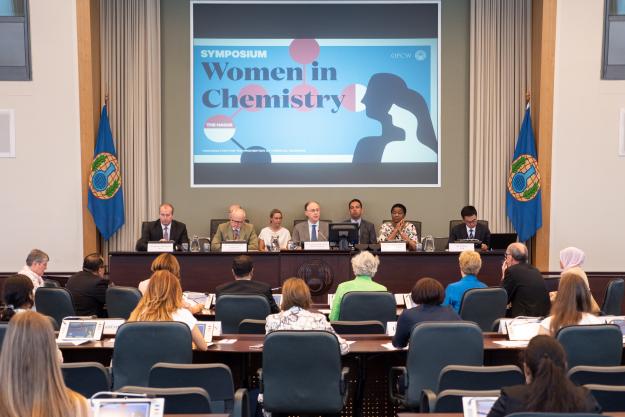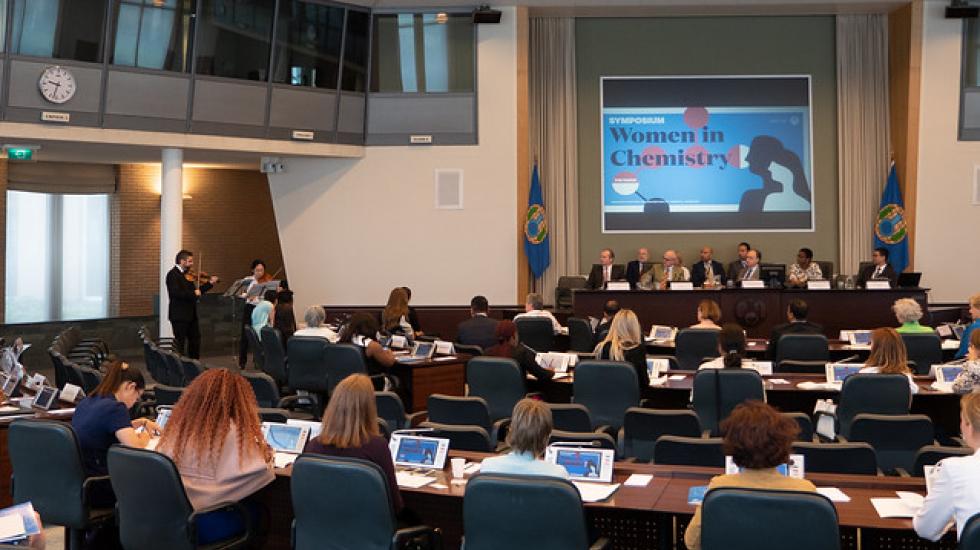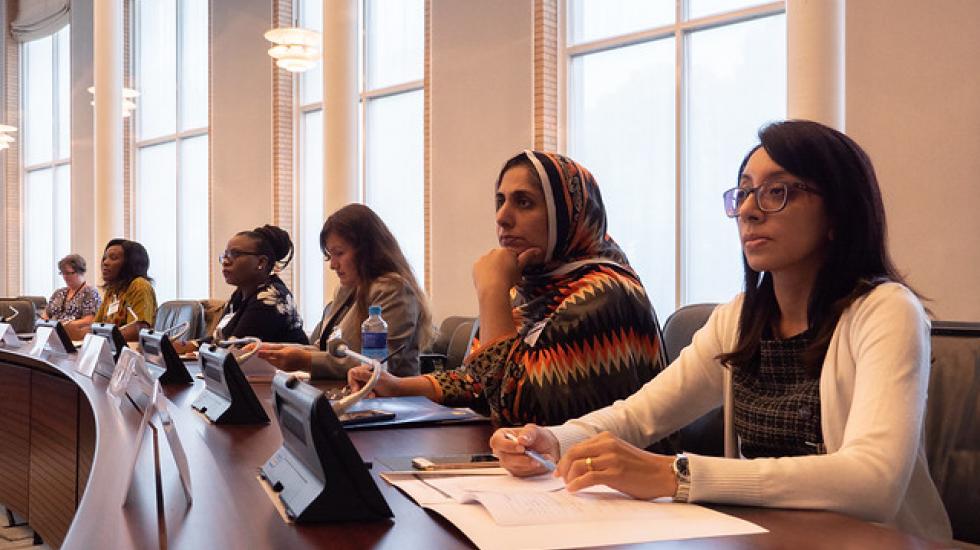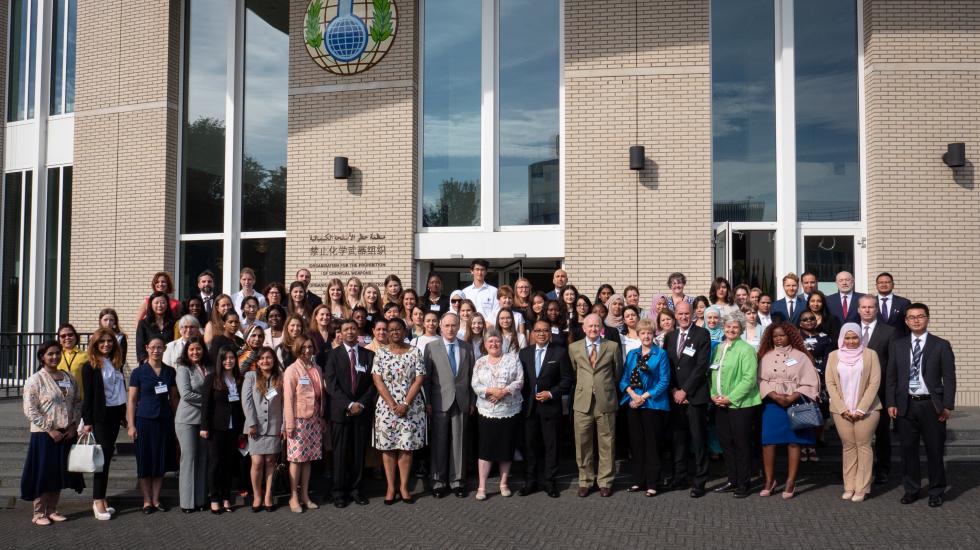
OPCW Director-General, H.E. Mr Fernando Arias, opens our Annual Women in Chemistry Symposium
THE HAGUE, Netherlands – 24 June 2019 – Women chemists and students from around the world gathered today at the 4th edition of the Symposium on Women in Chemistry at the Organisation for the Prohibition of Chemical Weapons’ (OPCW) headquarters in The Hague.
The theme for the Symposium this year is “Women Scientist for the Next Generation: Responsible Culture in Chemical Safety and Security Management”. The Symposium provides a platform for women to work together with each other as well as men to promote a responsible culture pertaining to chemical safe and security for future generations.
OPCW’s Director-General, H.E. Mr Fernando Arias, stated in his opening remarks: “Women are now heading multinational chemical companies, leading chemical societies, and steering cutting-edge research. However, we still have a long way to go. We must provide the opportunities and platforms for young women to develop their interest in science and foster an environment conducive to their success.”
The Permanent Representative of the Italian Republic to the OPCW and Chairperson of the Executive Council of the OPCW, H.E. Ambassador Andrea Perugini, shared his view on the challenges faced by women and highlighted: “The pursuit of excellence in scientific research cannot advance without improving diversity in research at institutional and cultural levels. Diversity supports creativity and innovation.”
While closing the symposium after the day of productive discussions, OPCW’s Deputy Director-General, H.E. Ambassador Odette Melono, emphasised: “Promoting gender equality in chemistry and science in general can only have a positive impact on our societies, and to a no lesser extent, on the full implementation of the Chemical Weapons Convention. We will continue to offer capacity-building courses for women chemists and chemical engineers as we promote the use of chemistry for peaceful purposes.”
The Symposium gathered over 60 participants from 40 OPCW Member States, including scientists, diplomats, academics, chemical industry representatives as well as students from universities and high schools.
Guided by the overarching theme, the participants shared their perspectives as working women from academia, chemical industries, laboratories and government agencies. The participants also provided suggestions to the OPCW on promoting diversity and equal opportunity for capacity-building programmes and further exchange of knowledge and information.
Eminent experts, including President of American Chemical Society, Dr Bonnie A. Charpentier; Secretary General of International Union of Pure and Applied Chemistry (IUPAC), Dr Richard Hartshorn; and Vice President-Global Trade Control of BASF S.E. Germany, Dr Renate Becker-Arnold, provided insights on career advancement for women and the importance of promoting peace and security in chemistry.
An exhibition was organised to provide a platform for participants to learn about OPCW’s functions, roles and activities in the implementation of the Chemical Weapons Convention.
After today’s symposium, 10 participants will attend a four-day basic analytical chemistry course at the OPCW Laboratory where they will learn about new analytical techniques, especially in gas chromatography-mass spectrometry (GC-MS) applied to chemicals relevant to the Convention.

OPCWs 4th Annual Women in Chemistry Symposium

OPCWs 4th Annual Women in Chemistry Symposium

Participants at OPCWs 4th Annual Women in Chemistry Symposium
Background
OPCW’s initiative on Women in Chemistry was launched in 2016 to attract talented women from government, chemical industry and academia to illustrate the strength and depth of women’s contributions to the peaceful uses of chemistry.
The symposium serves as a platform for women chemists around the world to share and discuss the challenges and opportunities experienced by women working in chemistry-related fields and to stimulate networking and cooperation in promoting gender equality and empowerment.
The Women’s Leadership Skills Program and Global Affairs Canada sponsored the participants of this year’s event.
As the implementing body for the Chemical Weapons Convention, the OPCW, with its 193 Member States, oversees the global endeavour to permanently eliminate chemical weapons. Since the Convention’s entry into force in 1997, it is the most successful disarmament treaty eliminating an entire class of weapons of mass destruction.
Over 97% of all chemical weapon stockpiles declared by possessor States have been destroyed under OPCW verification. For its extensive efforts in eliminating chemical weapons, the OPCW received the 2013 Nobel Peace Prize.
